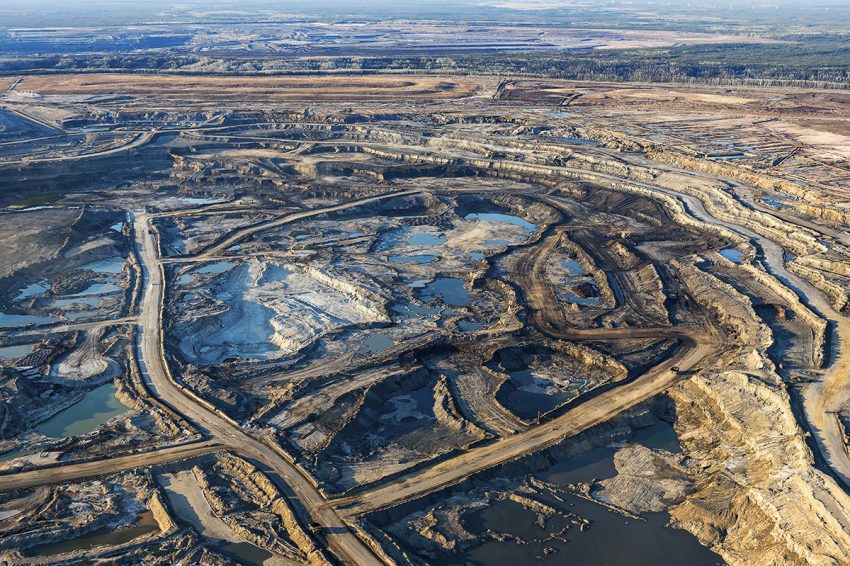Last week brought big news that Royal Dutch Shell, one of the world’s largest multinational oil companies, would sell off its Canadian tar sands assets.
Shell’s withdrawal from the tar sands is the latest move in a growing trend in Canada’s oil industry: the world’s largest oil companies are retreating from the tar sands, as low oil prices, stronger policies to fight climate change, and the accelerating global shift to renewable energy make the tar sands uneconomical.
Rather than trumpeting the tar sands to global oil and gas executives, as Prime Minister Trudeau did last week, it’s time for Canada to plan for a managed decline of the industry and a just transition for workers and communities affected by the shift to a clean economy.


Here are seven examples in the last three months of multinational oil companies scaling back or eliminating their holdings in the tar sands:
- Statoil. In December 2016, Norway’s Statoil sold all of its tar sands assets at a loss and exited Western Canada altogether, due to low oil prices, domestic pressure from Norwegians, and an “energy market (that) has changed since (2007) quite considerably.”
- Koch Industries. Just days after Statoil left the tar sands, Koch Industries, owned by the infamous climate-denial-funding Koch brothers, ended plans to build its proposed Muskwa tar sands project west of Fort McMurray.
- Imperial Oil. In January 2017, Imperial Oil, the Canadian subsidiary of ExxonMobil, announced it would “write down” 2.8 billion barrels of its bitumen reserves in Alberta. This was the company acknowledging that the tar sands oil could not be economically produced under prevailing low energy prices.
- ConocoPhillips. In February 2017, American oil giant ConocoPhillips was forced to admit that 2 billion barrels of its previously “proven” tar sands reserves might have to stay in the ground. ConocoPhillips also suggested low global oil prices made the reserves uneconomical to produce.
- ExxonMobil. Also in Febraury 2017, the United States’ largest oil company, ExxonMobil, announced that it can no longer profitably develop up to 3.6 billion barrels of its tar sands reserves unless oil prices rise. That’s 3.6 billion barrels of oil that could be left in the ground.
- Marathon Oil. On the same day as Shell’s tar sands divestment, Houston-based Marathon Oil signed a deal to sell its Canadian tar sands operations in an effort to cut the highest-cost assets from its portfolio.
- Royal Dutch Shell. The Marathon divestment was drowned out by the bigger news of Shell selling off all of its tar sands assets for $7.25 billion. The oil giant’s CEO said that the tar sands “are no longer a strategic fit for Shell.”
Shell’s huge sell-off of its tar sands assets was complemented by a commitment to invest $1 billion per year in renewable energy by 2020. It was also accompanied by a warning from Shell’s CEO, Ben van Beurden, that public faith in the oil industry was “just disappearing”. He went on to say that government regulations could render oil and gas reserves “economically infeasible” to exploit. Meanwhile, the CEO of Statoil, which divested its tar sands assets in December 2016, said on the same day that “the low-carbon future will reshape the energy space.”
The world’s largest oil companies are finally starting to see the writing on the wall. The world is flooded with cheap oil that can’t be burned as we ramp up global climate action. The oil industry’s business model is becoming obsolete and the first casualties will be high-cost, high-carbon sources like tar sands oil that can’t compete in a world of low prices and declining demand.
It’s time for Canada to get serious about a managed decline of the tar sands and a just transition for workers and communities. The first thing we can do is stop building new fossil fuel infrastructure that is no longer needed. Tell the federal government to reject the risky Energy East pipeline.






